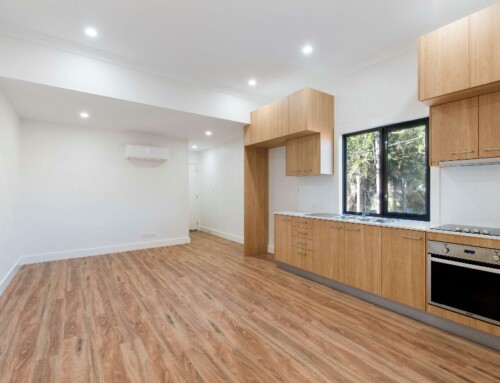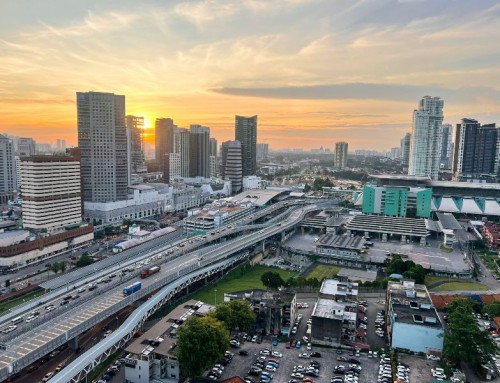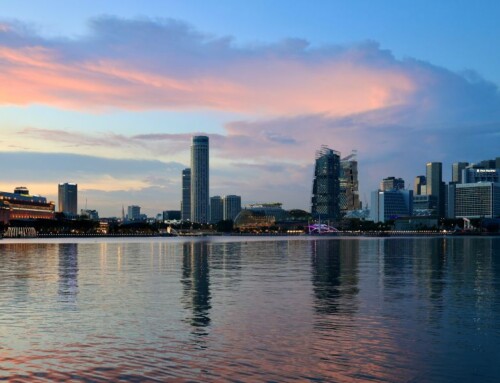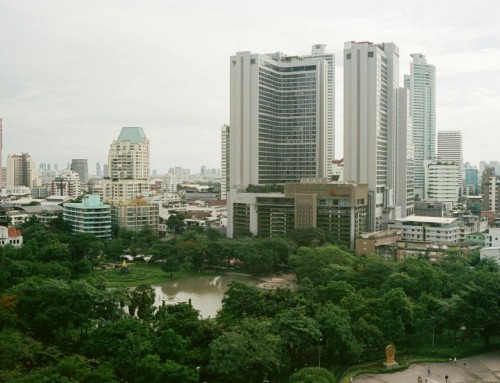I think it would not be too far-fetched for me to state that the Bangkok property market has not fully recovered to pre-pandemic levels in terms of the level of supply. Back in 2018, a total of about 65,000 condominium units entered the Bangkok property market (source: Bangkok Post). In 2023, 16,247 new condominium units were released, 12,172 in Q2, a meagre 5,367 in Q3, and 13,910 in Q4. This meant a total of about 47,000 condominium units were released in 2023. Demand-wise, the demographics of the buyers of Thai property have changed significantly. While Chinese buyers remain the top foreign buyers of condominiums in Thailand, Russian buyers are now in second place with US and Taiwan buyers in third and fourth spots respectively. In this article, I will attempt to shed light on the state of the Bangkok property market in 2024 thus far. To understand and, possibly, predict the direction of the Bangkok property market, we will need to consider the following factors.
The push factors for the major buyers of Thai property
There is a lot of motivation for the major buyers of Thai property to leave their home country. The Chinese economy is growing increasingly isolated. It will get increasingly difficult for the Chinese to bring money out of China to purchase properties. This is one of the main reasons why the Chinese are trying their best to make their purchases now. It is also one of the reasons why there are properties where buyers are unable to complete the transaction. The bulk of these are Chinese buyers. They are unable to make the final payment when the condominium is completed. This is because they are not able to bring their money out of China to make the final payment.
Russian buyers are moving to Thailand because of the war in Ukraine. Thailand is one of the few countries in the region that are welcoming of Russian tourists. While this is a pull factor, I will elaborate on it a little here. Russian citizens have access to visa-free entry to Thailand. They are allowed to stay in Thailand for up to 90 days. Places like Phuket and Pattaya are the choice destinations when Russians purchase Thai property. Although there is still a very strong demand from Russian buyers for Bangkok properties. However, the Chinese still outnumber the Russians easily.
Taiwanese buyers are also increasingly getting more prominent. The main reason for a Taiwanese to look outside of Taiwan would be the political situation in Taiwan. The political situation in Taiwan would dictate its relations with Mainland China and that would affect investors’ outlook on the Taiwanese economy. There is always a threat of impending conflict with the mainland if the ruling political party in Taiwan is not a party that the mainland can tolerate. Taiwanese who can afford to will always be on the lookout for properties outside of Taiwan as an alternative if ever there is a conflict. Even if there is not one currently, there is always the possibility of there being one in the future. The wars in Ukraine and Gaza have shown how it is highly unlikely that the major powers will not come to the aid of smaller countries. Most Taiwanese buyers of Bangkok properties are looking for properties in Bangkok as an alternative if either Taiwan enters into a conflict with the mainland or if the Taiwanese economy becomes too lacklustre that it would be untenable for those in business to remain in Taiwan.
The pull factors
While the push factors are the factors that are getting people to leave their home country, the pull factors are the reasons why Thailand, namely Bangkok, is an attractive destination to purchase a foreign property.
For starters, foreigners can obtain a clean title to a Thai property. This means that there is no need to set up complicated trust structures whereby a local would hold the title for the foreigner who is the ultimate beneficial owner. This is not the case for properties that foreigners purchase in neighbouring countries like Indonesia and Vietnam.
Next, the Thai economy is an extremely open one. Thailand has 14 free trade agreements (FTAs) with 18 countries. As a point of reference, Singapore, being the most open economy in South East Asia has 15 bilateral and 12 regional FTAs. Bangkok has an abundance of grade-A office space which is important in attracting large multi-national corporations to set up headquarters in Bangkok.
The Bangkok transit system is also extremely well-developed. The recent expansion of the Bangkok mass transit system is significant. The commonly used green Sukhumvit BTS train lines were expanded to include new stations at both ends. There are also new train lines that improved connectivity extensively. For example, the new Red Line connects the Don Meung airport to the rest of Bangkok while the Yellow Line shortens the journey from the north of Bangkok to the Hua Mak area (which is closer to Suvarnabhumi Airport). Before, the only transfer points would be at Siam or Asoke and that creates huge congestion. However, these new train lines have alleviated these issues greatly.
Comparatively, the Thai banking system is very developed. Thai banks are open to financing businesses. International fund transfers are not difficult. That being said, Thai banks do not finance foreign purchases of Thai property. This is because of certain foreign exchange regulations (I had touched on this in earlier articles). Foreign purchasers of Thai properties will have to seek financing from banks outside of Thailand.
The anticipated tourism rebound in Thailand
Thai tourism has yet to recover to pre-pandemic levels. In 2019, a record 39.8 million tourists visited Thailand. The numbers in 2023 were still below 30 million. However, the Thai government has been very proactive in trying to woo tourists from two very large economies and nations, China and Russia. Their target is to have 80 million tourists by 2027. Both Chinese and Russian tourists enjoy visa-free travel to Thailand. The full effects of these policies will not be known until we receive a full report of the numbers at the end of 2024. However, this, coupled with a weak Thai Baht, bodes well for Thai tourism numbers moving forward. Traditionally, tourism revenue accounted for more than 10% of Thailand’s Gross Domestic Product (GDP). If this target is reached in 2027, it would likely result in at least a 10% boost in Thailand’s GDP.
While Thailand has always tried to place less reliance on tourism as a contributor to GDP, for the near to mid-term, I believe there is no way they can pivot away from the fact that they are extremely reliant on tourist dollars to boost their GDP numbers and consequently the wealth of the nation.
The state of the Thai economy
Thailand’s GDP numbers have been very poor since the pandemic. In 2020, the Thai economy contracted by 6.1 per cent. The subsequent 3 years saw the Thai economy expand by 1.5, 2.6 and 1.9 per cent. This in effect means that the Thai economy has yet to recover to levels before the pandemic. There is a very telling reason for this. The Chinese were a major contributor to the Thai economy. Not just in tourism dollars but in direct foreign investment. Now that the Chinese economy is facing strong headwinds, the Chinese are not contributing to the Thai economy as they did before the pandemic. It is very difficult to fill the gaping hole left by the Chinese. While there has been an uptick in monies flowing in from Russia, Myanmar, Malaysia, Hong Kong and Taiwan, it will never be able to match what the Chinese contributed pre-COVID. I must say that when it comes to tourism, the Thai government has not done enough to ween its economy away from its reliance on tourism. It has also done little to boost tourism dollars. It is losing out regionally to places like Singapore when it comes to hosting high-profile acts. Remember years ago when it mooted the idea of having a Formula 1 race in Thailand? That did not bear fruit. There comes a point in time when you cannot merely rely on tourists flocking to your city just because it is cheaper than their home countries.
The only solution for the Thai government is to reinvent itself to try to have other drivers of the economy. The next global trend that the Thai government should tap into would be artificial intelligence. The Thai government was savvy enough to move along with the earlier trend of electric vehicle production. The new BYD plant to manufacture EVs will open in the 3rd quarter of 2024. This plant is expected to build 150,000 EVs every year. This should add a good number of skilled jobs to the Thai economy. My take would be that if the current government can remain in power for an extended period, it can then put in place longer-term policies to drive the economy.
In conclusion, the state of the Thai property market is still uncertain. Buyers should not focus on making short-term gains because these short-term gains may not materialise. It would serve property buyers to take a longer-term view. The property that they hold in Bangkok should be one that can be rented out easily. For this, there are a host of factors to ensure that this ease of rental is present. Most notable would be the proximity to the train station. The market may remain slow for an extended period. Remember the US housing crisis in 2008 and how the US property market tanked and it was speculated that it would take an extended period to recover? It did recover in less than a decade. The Thai property market is not facing such a debt crisis but merely a slowdown due to a slowing global economy. My take is that if the property market were to remain tepid, it would be likely that it would not remain so for over 5 years with the start of the 5 years being in 2020. I based my hypothesis on past crises.
Yours sincerely,
Daryl






